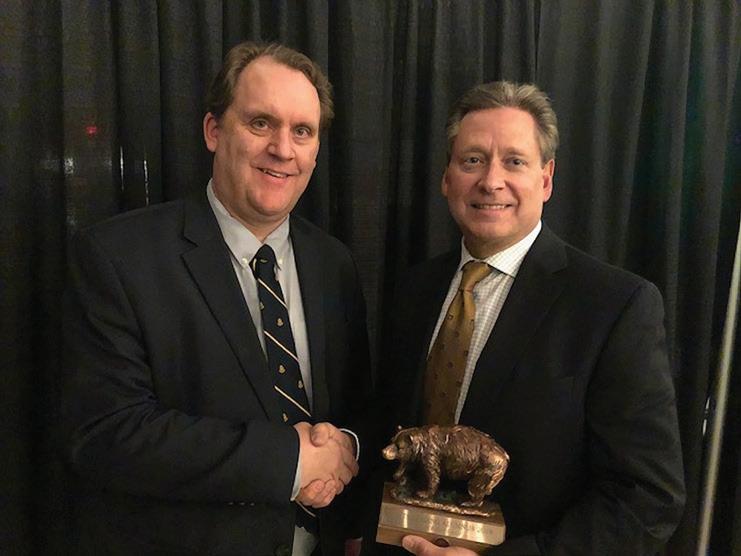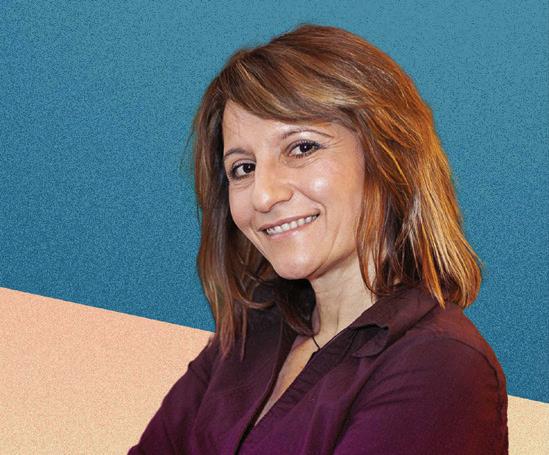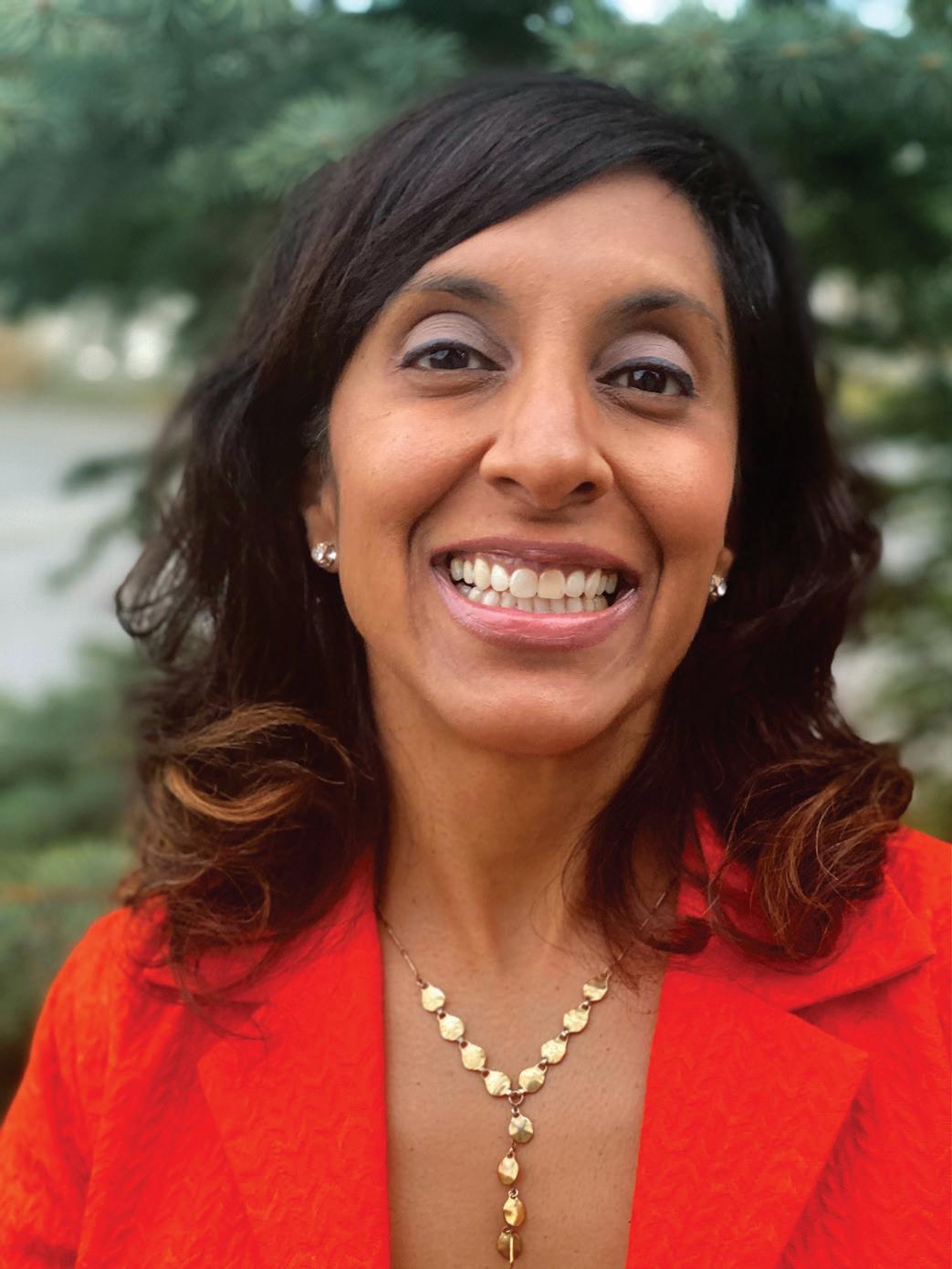
8 minute read
Assistant Deans’ Distillate
Dr. Jill Hall
Advertisement
Reflecting on my professional journey to date, I have been influenced, mentored and coached by so many inspiring women. When I think about how I want to give back, in who I am and how I lead, and as advice for those searching for their ‘how’ or ‘what’s next,’ a few key things come to mind.
First, keep your eyes open for unexpected opportunities and embrace the possibilities that they may bring. I didn’t know that as a first year pharmacy student looking to complete some internship hours that walking into a tiny independent pharmacy in my community would have such an impact on my career. Behind the counter was a formidable mother-daughter duo who were pushing the boundaries of practice before it was trendy to do so. They kept people at the centre of their practice and did whatever it took to serve them, regularly completing home visits—wicker basket of prescriptions in hand—with the intention of not just delivery or assessment of effectiveness and safety, but to connect with isolated patients. The first ever pharmacist-conducted injection also happened in that little pharmacy—and look at us now!
Second, surround yourself with people who both support you and challenge you. I had the privilege of completing my residency in a hospital setting that felt like family and pushed me beyond what I thought was possible. Expectations were high—patient loads, therapeutic discussions, and resident-led continuing education for the pharmacy team week after week. The questions were tough but clearly delivered with the aim of developing us into exceptional members of their pharmacy team. It was like a parent’s ‘tough love.’ It not only helped me grow but laid the foundation for how I teach, in the classroom and in practice, and with whom I continue to surround myself. This ensures that I keep learning and growing in all aspects of my work, taking the opportunities that both challenge and ultimately energize me as I fulfil my professional purpose in life.
Third, be true to who you are—being able to name my purpose and the values that support that purpose is what enables me to find joy in even the most difficult work and to search for that next opportunity. John Izzo and Jeff Vanderwielen’s work, The Purpose Revolution, says, “When you come to the end of a day and really feel it mattered that you got up in the morning and that you contributed, what is it that gives you that feeling? If you were missing from your team or organization, what would people really miss? What is the way you uniquely contribute?” For me, it is, and has long been, to help shape pharmacists better prepared to deliver exceptional care and to do so with people at the centre of that purpose. In overseeing the professional programs, I lead from the heart. I truly care about the work we are doing and about the people I am doing it with and for.
Dr. Ravina Sanghera

ASSISTANT DEAN, PROGRAMS AND STUDENT SERVICES & ASSOCIATE CLINICAL PROFESSOR
I would like to thank all of the women who paved my way and especially those who not only saw potential in me but committed the time to develop it.
My mom and my late grandmother inspire me. My mom came to this country with an unfinished nursing degree and a few dollars to her name. She and my father worked multiple jobs to provide for us and, even when life became comfortable, they continued to work at novel opportunities fueled by their desire to give us a better life. Long hours at multiple jobs meant that my grandmother was a primary caregiver for my brother and me during the day. The partnership between my grandmother and mother to attend to our needs was inspiring. It has continued today with my mother as my biggest cheerleader and an ally of my professional success. Women uplifting other women is what the females in my family have demonstrated over generation and generation. As a female academic member from an underrepresented group, with three young children, pursuing my third post-secondary degree, I aspire to do the same for other women that I meet.
The key turning point in my life was when my brother died by suicide seven years ago. The ground beneath me shattered, and I felt that I was incapable of salvaging any sense of who I was and wanted to be. My identity was tied to my brother and I over-identified with him being gone; therefore, I felt like I was gone. With a lot of counselling and exploration of grief, I began to re-envision a new version of me. Though it took some time, this grief transformed into energy and skills that I now pour into my work with students as the Assistant Dean of Student Services and as an instructor. I was able to create space in my brain and heart to take on others’ concerns and struggles and be intuitive in how best to support them. I extend this space to patients as well, as they are seeking care at a time when their chronic condition is making them especially vulnerable and need someone to acknowledge the difficulty that is being experienced.
My experiences have helped me to shift my thinking from being goals-focused to response-focused. How I am going to react when things don’t go my way, and more importantly, what values I am going to uphold when the journey gets difficult? Michelle Obama famously and most beautifully articulated this exact shift in a speech. She asked, “Who are you going to be? I am asking you how you plan to live your life every day, and how are you going to respond?” How are you going to manage failure and setbacks? How will you react when you are expected to complete a task that seems so difficult at the time? These are the moments that will define us. As much as we plan to celebrate our successes, we need to plan to manage our setbacks and challenges as well, so we don’t lose sight of “who we are going to be.”
I have learned that I shouldn’t get hung up on emulating the exact path to success as my mentors. I can learn from my predecessors, but I also accept that my journey may look different from others because I have my own unique experiences, strengths and challenges. I’m always ready to adjust my route when needed, and I don’t see that as a deterrent; instead, it adds to my story.
Dr. Ann Thompson

- Maya Angelou
This quote, along with “lead with kindness,” embody guiding principles that I aspire to demonstrate with my actions and words. I aim for these attributes to inform the care I provide patients, how I work with and treat others and how I teach. In a world that can have so much negativity, criticism and cynicism, I am mindful to try to be a positive role model, leading by example. I have been fortunate to be shaped by many mentors and colleagues within professional and personal circles who have instilled in me the importance of timely, transparent and respectful communication, motivating through inspiration and the power of effective teamwork. In dynamic and healthy workplaces, I have seen real change occur when teams are willing to learn from each other, embrace a growth mindset, be challenged by others, try new approaches and acknowledge mistakes to move together more informed for future endeavours.
I believe that increasing female representation in leadership roles is needed. In a profession like pharmacy that is dominated by women, we need commensurate visibility in leadership roles, and too frequently, men occupy them. In a recent Harvard Business Review article entitled “7 Leadership Lessons Men Can Learn From Women,” the authors talked about women better knowing their limitations and generally being less overconfident compared to men. They explained that this is, in fact, good, as it shows more self-awareness and the ability to identify gaps between where they are and where they aspire to be. Furthermore, they state that people who see themselves more critically are better able to prepare for roles, which is critical for increasing competence and performance. I can think of numerous examples where this has been the case for myself, and I work hard to be prepared in my professional work. As a woman who has been privileged to work with students, patients and colleagues, I strive to harness the attributes that I admire in others: kindness, humility, curiosity, vulnerability and persistence.
As I reflect on how we can prepare women for leadership roles, I think strong mentorship and role models should be at the center. We also need organizations to recognize the diverse leadership qualities that women bring to the table and offer opportunities for women to lead when they have a proven track record of successes. Thinking about my original quote, I hope all leaders have the strength and courage to lead with kindness, clarity and mindfulness of how we make others feel. As Amanda Gorman, a now-famous poet laureate, said, “If only we’re brave enough to see it. If only we’re brave enough to be it.” I hope all my students and colleagues see this within themselves and know that so many of us are cheering them on.









